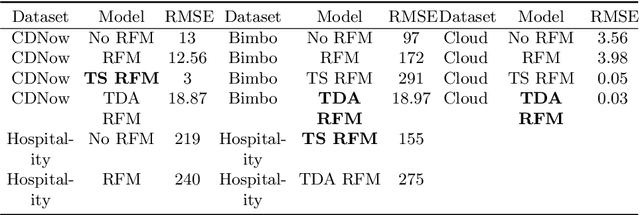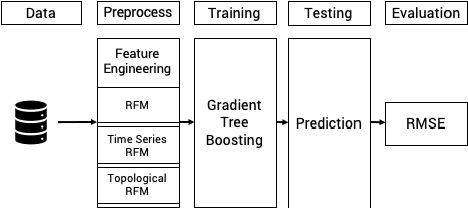Alexander Pletnev
Hierarchical B-frame Video Coding for Long Group of Pictures
Jun 24, 2024Abstract:Learned video compression methods already outperform VVC in the low-delay (LD) case, but the random-access (RA) scenario remains challenging. Most works on learned RA video compression either use HEVC as an anchor or compare it to VVC in specific test conditions, using RGB-PSNR metric instead of Y-PSNR and avoiding comprehensive evaluation. Here, we present an end-to-end learned video codec for random access that combines training on long sequences of frames, rate allocation designed for hierarchical coding and content adaptation on inference. We show that under common test conditions (JVET-CTC), it achieves results comparable to VTM (VVC reference software) in terms of YUV-PSNR BD-Rate on some classes of videos, and outperforms it on almost all test sets in terms of VMAF BD-Rate. On average it surpasses open LD and RA end-to-end solutions in terms of VMAF and YUV BD-Rates.
Topological Data Analysis of Time Series Data for B2B Customer Relationshop Management
May 26, 2019


Abstract:Topological Data Analysis (TDA) is a recent approach to analyze data sets from the perspective of their topological structure. Its use for time series data has been limited to the field of financial time series primarily and as a method for feature generation in machine learning applications. In this work, TDA is presented as a technique to gain additional understanding of the customers' loyalty for business-to-business customer relationship management. Increasing loyalty and strengthening relationships with key accounts remain an active topic of discussion both for researchers and managers. Using two public and two proprietary data sets of commercial data, this research shows that the technique enables analysts to better understand their customer base and identify prospective opportunities. In addition, the approach can be used as a clustering method to increase the accuracy of a predictive model for loyalty scoring. This work thus seeks to introduce TDA as a viable tool for data analysis to the quantitate marketing practitioner.
* 9 pages, 2 figures, 1 table
 Add to Chrome
Add to Chrome Add to Firefox
Add to Firefox Add to Edge
Add to Edge